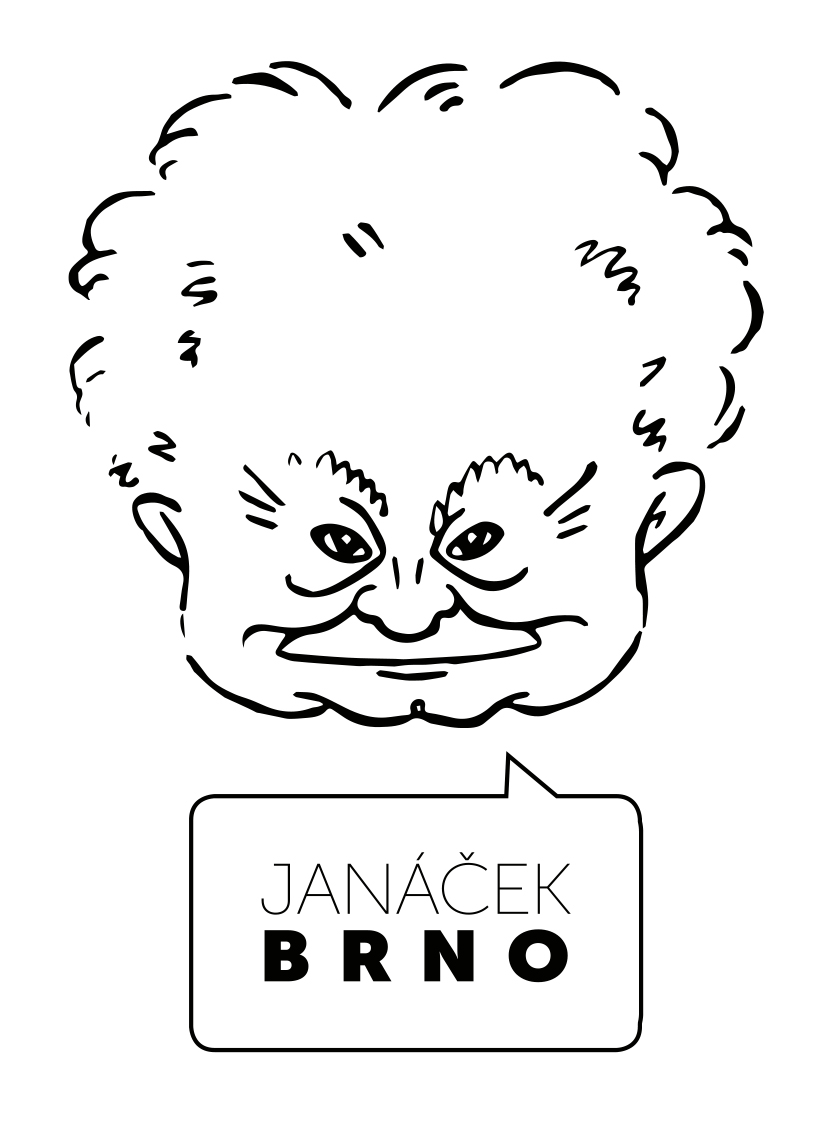
ŠÁRKA JW I/1
opera in three acts
libretto by Leoš Janáček, based on a play of the same name by Julius Zeyer
Act 3 orchestrated by Osvald Chlubna1887-88, rev. 1919, 1925
premiere 11. 11. 1925 Brno
first publication Universal Edition - Editio Moravia, Vienna - Brno 2001 (piano score, full score, performing material, ed. Jiří Zahrádka, critical edition)
- This romantic opera is based
on the Bohemian myth about Šárka, the heroine of the female army, and her
doomed love for the warrior Ctirad. Before finishing the opera, Janáček
quarrelled with the author of the libretto, the poet Julius Zeyer, who refused
to give Janáček permission to set his text to music. As a result, Janáček had
to leave Šárka, returning to it thirty
years later.
Janáček was inspired to work on his first opera by the "musical drama Šárka" by the poet Julius Zeyer, which the author had originally intended for Antonín Dvořák. When Dvořák did not use the libretto, Zeyer decided to at least print the text in the magazine Thalia, where Janáček read it and was so impressed that he immediately started work on his first opera. He shortened and modified Zeyer's text and by 1887 the whole opera had been completed as a piano score. Afterwards, Janáček sent his debut opera to Antonín Dvořák, who he had become friends with while studying in Prague. Dvořák's positive assessment of the opera emboldened Janáček to ask the already famous Julius Zeyer for his consent to setting his text to music. However, the poet was resolute in his refusal. What seemed to have angered him the most was the fact that a novice composer had taken his libretto without prior consent and had then changed and cut out much of the text. Despite the poet's opposition, Janáček continued to work on the opera, but because no agreement with Zeyer was possible, he set the work aside and over time completely forgot about it. It was only thirty years later when he was making the final arrangements for the premiere of Jenůfa in Vienna in 1918 that by chance he came upon the opera at the bottom of a trunk where he stored his manuscripts. He decided to finish it, but first of all he had to gain permission for setting the text to music which Zeyer had previously refused to give. The poet was no longer alive in 1918 and the copyright for his works belonged to the Czech Academy of Emperor Francis Joseph for Science, Literature and Art, which willingly gave its consent to the now-famous composer. The first performance of the opera Šárka took place at the National Theatre in Brno in 1925 under the baton of František Neumann and directed by Ota Zítek. From various documents it is apparent that Janáček did not consider Šárka to be a mere curiosity from his earlier days as a composer, but rather that he valued it just as highly as his best operas. He also put a lot of effort into trying to get it published by his publishers (Vienna Universal Edition), though this did not happen until 2001.
Opera synopsis
Act 1
After the death of Princess Libuše, the women lost their numerous privileges, including the right to chose their own husband, which was why, under the leadership of the warrior Vlasta, they decided to declare war on men. The men were led by the husband of the deceased Libuše, Prince Přemysl. A young warrior, Ctirad, arrives at the courtyard of Libuše's castle. He explains to Přemysl that he has come for the weapons left to him by his ancestors which are kept in Libuše's tomb. Přemysl and the other rulers leave and Ctirad enters the tomb of the dead princess. Whilst lost in contemplation he is disturbed by a group of warriors led by Šárka, who wants to secure Libuše's crown for Vlasta, the ruler of the women. Ctirad, however, obstructs their path and Šárka and her warriors flee.
Act 2
Although Šárka is aware of her growing sympathy for Ctirad, she is overcome by the desire for revenge and places him in a trap. She orders the other warriors to bind her to a tree and then hide. Ctirad is lured by Šárka's appeals to be set free, and she tells him that she was tied up by Vlasta for her failed attempt to secure Libuše's crown. Enchanted by Šárka's beauty, Ctirad immediately confesses his love for her and Šárka almost succumbs to the temptation to become his wife. But then she regains her resolve and with a blast of her horn signals her warriors to come out of their hiding and kill Ctirad. Later, Šárka regrets her actions.
Act 3
Led by Lumír, some men bring the body of Ctirad to Vyšehrad and build a pyre to burn him on. Šárka arrives and confesses what she has done in front of everyone. Then she jumps onto the fire and stabs herself. Lumír then lights the pyre with a torch and everyone marvels over the power of love.
